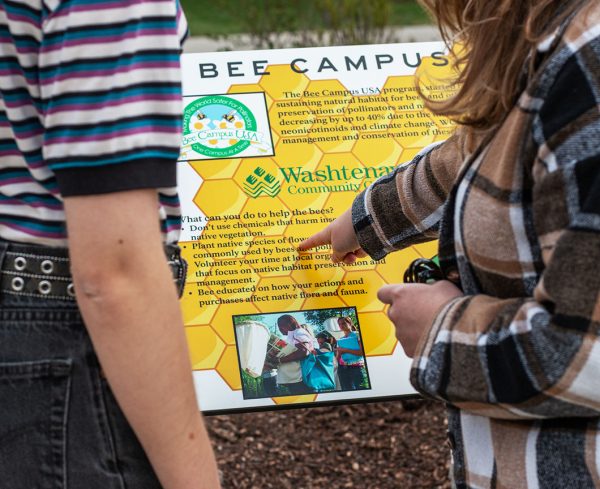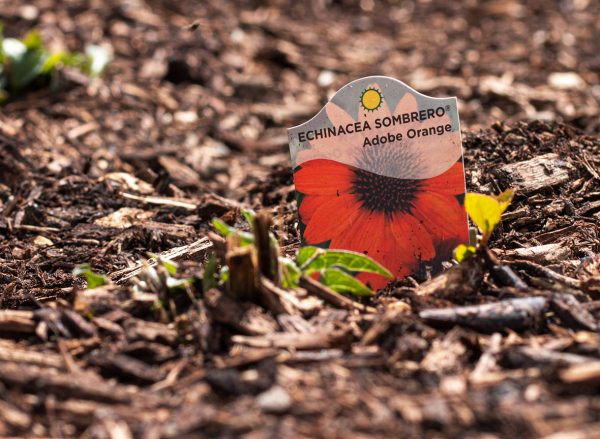
Students read an informational board at the new insect garden. Ruby Go | Washtenaw Voice
by Grace Crandall
Staff Writer
Students and faculty came together to create WCC’s new pollinator garden as a part of the Bee Campus USA program, April 18 and April 20. The plot, located outside the Crane Liberal Arts and Sciences Building and the Gunder Myran Building, is part of this year’s initiative towards making WCC a pollinator-friendly campus.
About 10 students from the Student For Sustainability (S4S) Club on campus came to assist in the planting of shrubs and flowers.
“It was freezing and windy, but the students enjoyed it,” said Sandy McCarthy, librarian at WCC and one of the leaders of WCC’s Bee Campus USA affiliate. “Now they can come back through here and say, ‘Hey, I planted that!’”
Pollinators include birds, butterflies, and, of course, bees. The plants grown in the new plot will be a food source to pollinators, thus completing one of the goals of Bee Campus USA. Bee Campus USA was started by the Xerces Society, as part of an initiative to help college campuses sustain natural habitats for pollinators. The Xerces Society is a non-profit environmental organization that works towards the conservation of invertebrates.
WCC has been a Bee Campus USA partner since 2019, becoming one of three in Michigan. As WCC’s Bee Campus USA website explains, over one-third of the world’s crops are dependent on bee pollination. Providing native plants as food for bees and other pollinators is vital to a healthy environment.

Echinacea, also known as coneflowers, attract bees. Ruby Go | Washtenaw Voice
While many areas around campus feature flower beds that are pollinator-friendly, the new garden specifically has plants that will be food sources throughout the year. These include hibiscus, butterfly bushes, reed grass, and coneflowers. A tree was also planted as part of WCC’s tree campus work.
Another focus of Bee Campus USA is limiting the amount of pesticides used on campus. WCC follows an integrated pest management (IPM) plan, which states the order of pest control measures to be used. The use of chemicals should always be a last resort, according to the IPM plan.


